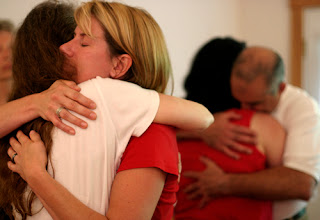 |
| Anger management |
The key point that I want to emphasize in this article is that there is no right way to express your anger. And that 1 way is no better or worse than the other way. Society has this view that if you explode and have the volcanic response then you are a bad person and have anger management problems. People who respond in other ways (e.g., passive aggressive tendencies) may have just as many anger management problems. They just know how to hide them a lot better. We as a society really need to change the way that we think about anger management and people who have anger management problems. We should be just as worried about the "passive aggressive" as we are of the "volcano". Let me explain what I mean by these 2 terms.
The Volcano
The volcano is the person who explodes or erupts. This is the person who represses their anger for a while, until it becomes too much and they can't take things any longer. For example, they will:
- Physically last out at people. They may hit their wife, they may get in a bar fight while intoxicated
- Verbally lash out at people. For example, they may be verbally abusive to their friends and loved ones.
- Storm off. During a conversation, they may be triggered and decide to leave the room in a huff and a puff.
Passive Aggressive Response
A really common expression of anger (that a lot of people aren't aware of) is the passive aggressive response. In modern society (unlike in cave-men times) it isn't socially acceptable to express your anger using the volcanic approach. People will call you unstable, needing anger management counselling and is often the 1 reason why people lose their jobs and relationships.
So what do people do when anger builds within them in today's world? They react in passive aggressive ways. For example:
- Silent Treatment. You will expect the other person (whom you are mad at or choosing as a scapegoat for your anger) to be a mind reader and approach you to discuss your problem that you have with them. Oftentimes people, who employ this approach will emotionally shut down and be there in body but not in spirit.
- Gossip. Instead of addressing your issue with the person whom you are annoyed with. You will gossip about them to work colleagues, family and friends.
- Use of sarcasm, humor or subtle put-downs. Sometimes people will disguise their anger or annoyance with someone using this passive aggressive approach. Namely, subtle put-downs that are disguised as a joke. Often your conscious mind isn't even aware that you are annoyed with the person when you are doing it. And this is when the passive aggressive tendency is employed (often without you even being aware that you are doing it).
I Don't Judge
The most important thing to do here is not to judge. Just because you have volcanic or passive aggressive tendencies does not make you a bad person. Nobody is perfect and we all express our anger in 1 of these 2 ways from time to time. The important thing is that we understand and are aware as to why we are behaving in this manner. Real behaviour change comes through awareness.
From my clinical experience, generally the person or partner who has a volcanic way of expressing their anger will come along to anger management counselling sessions (or be forced along). As the sessions go on, they often make the realisation that they aren't 100% to blame for the situation. What they find is that other people in their environment have anger management problems as well. The main difference being that they are better at hiding their anger. Usually "their" way of expressing anger is through passive aggressive tendencies. This piece of awareness doesn't shift the blame to the other person.
It helps them to understand the anger management cycle and how different people express their anger and frustration.
View the original article here
No comments:
Post a Comment